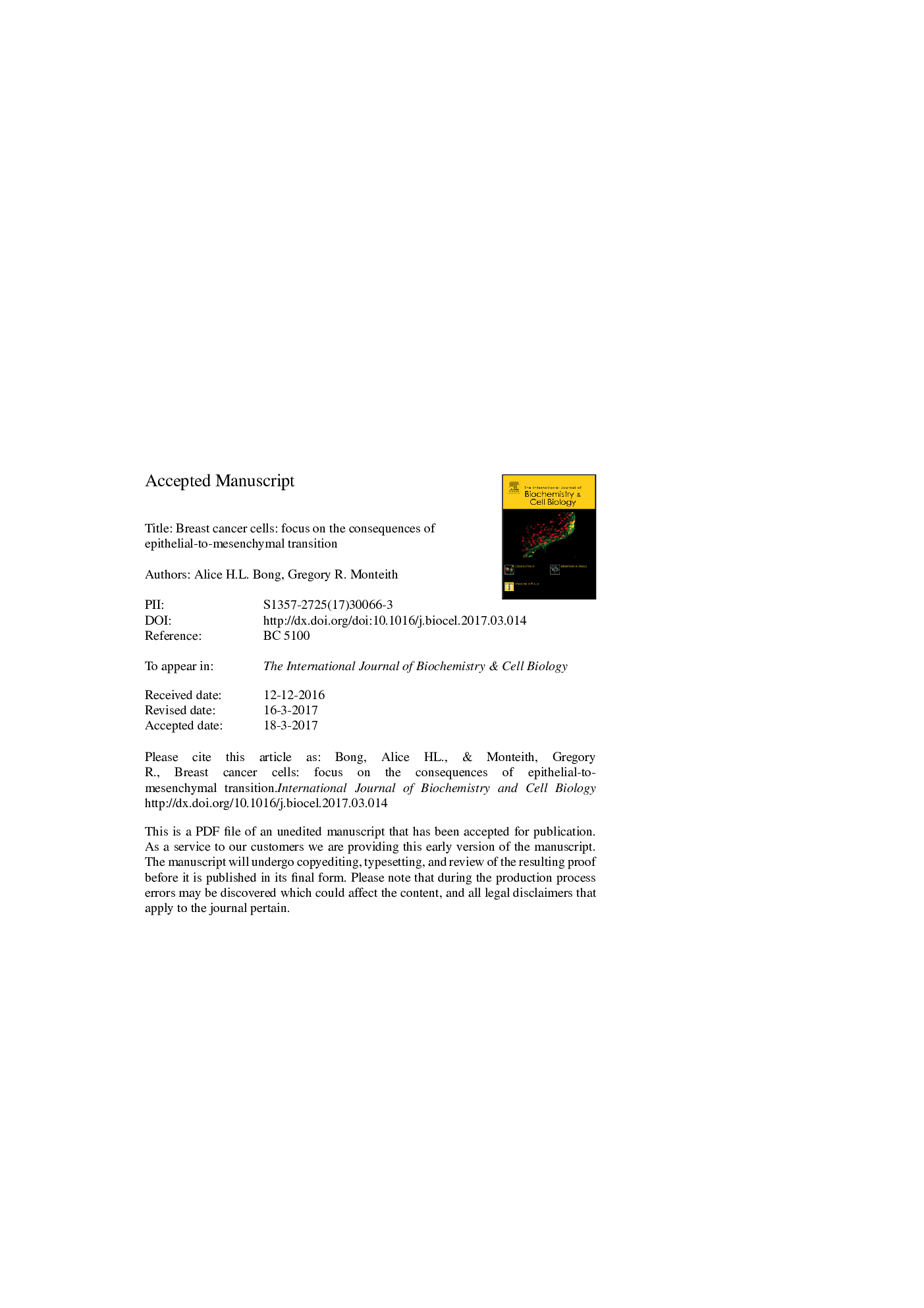| Article ID | Journal | Published Year | Pages | File Type |
|---|---|---|---|---|
| 5511389 | The International Journal of Biochemistry & Cell Biology | 2017 | 19 Pages |
Abstract
Breast cancers are highly heterogeneous and successful treatment of those subtypes with a high frequency of metastases and resistance to clinically available therapies remains a challenge. An understanding of mechanisms which may contribute to this heterogeneity and generation of more resilient cancer cells is therefore essential. Epithelial-to-mesenchymal transition (EMT) is a dynamic two-way process that occurs during embryonic development and wound healing whereby epithelial cells can gain plasticity and switch to a mesenchymal-like phenotype. EMT has received interest from cancer researchers due to its potential role in processes important in cancer progression and metastasis. Recent evidence has revealed a clear association between EMT and resistance to therapeutics. Targeting of EMT and/or the mesenchymal-like phenotype may be a promising avenue for future therapeutic intervention. This review provides a brief summary of the functional consequences of EMT in breast cancer, with a focus on the mesenchymal-like phenotype.
Keywords
TRPM7MMPEGFTGF-βIGFRac1ABCPD-L1RhoAMesenchymal-to-Epithelial TransitionTransforming Growth Factor BetaEMTRas-related C3 botulinum toxin substrate 1epidermal growth factorRas homolog gene family member AProgrammed death ligand 1Matrix metalloproteasemesenchymalMETHeterogeneityPlasticitybreast carcinomaATP-binding cassetteepithelial-to-mesenchymal transitionPlatelet-derived growth factor receptor alpha
Related Topics
Life Sciences
Biochemistry, Genetics and Molecular Biology
Biochemistry
Authors
Alice H.L. Bong, Gregory R. Monteith,
